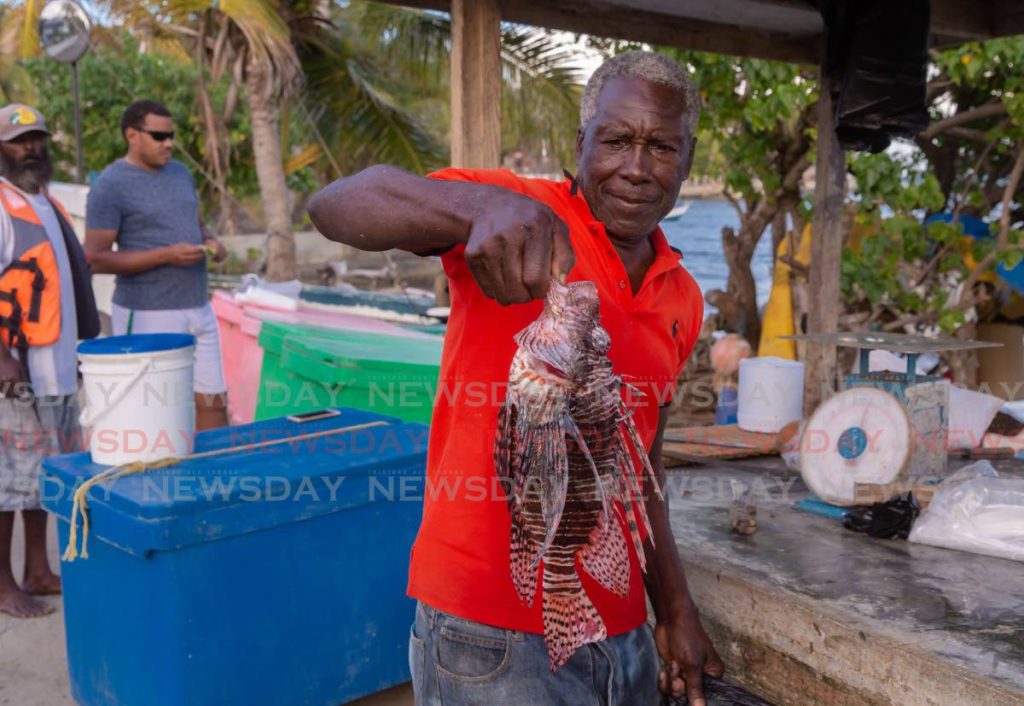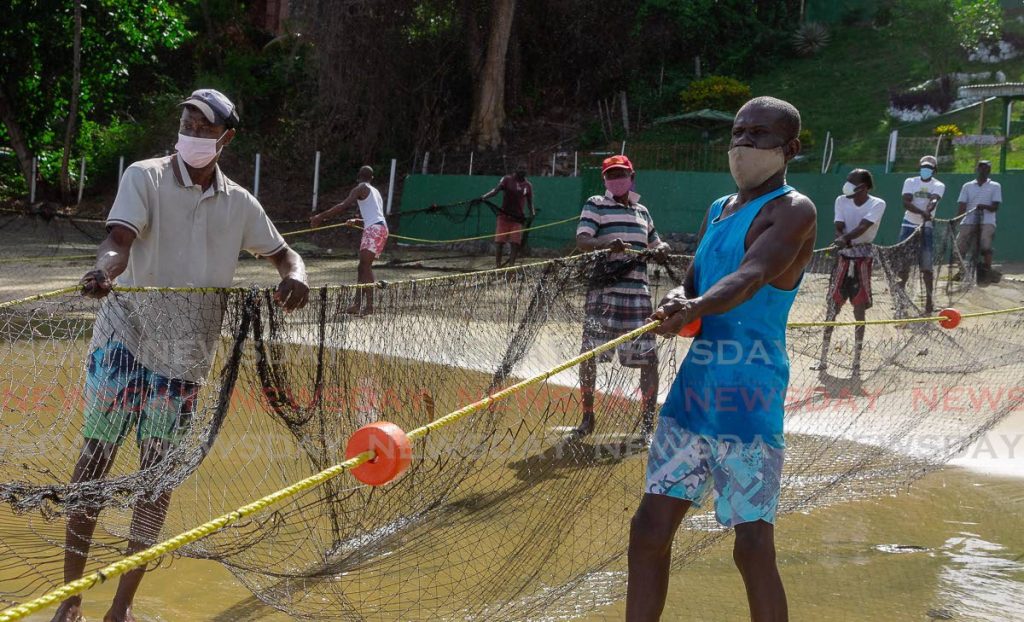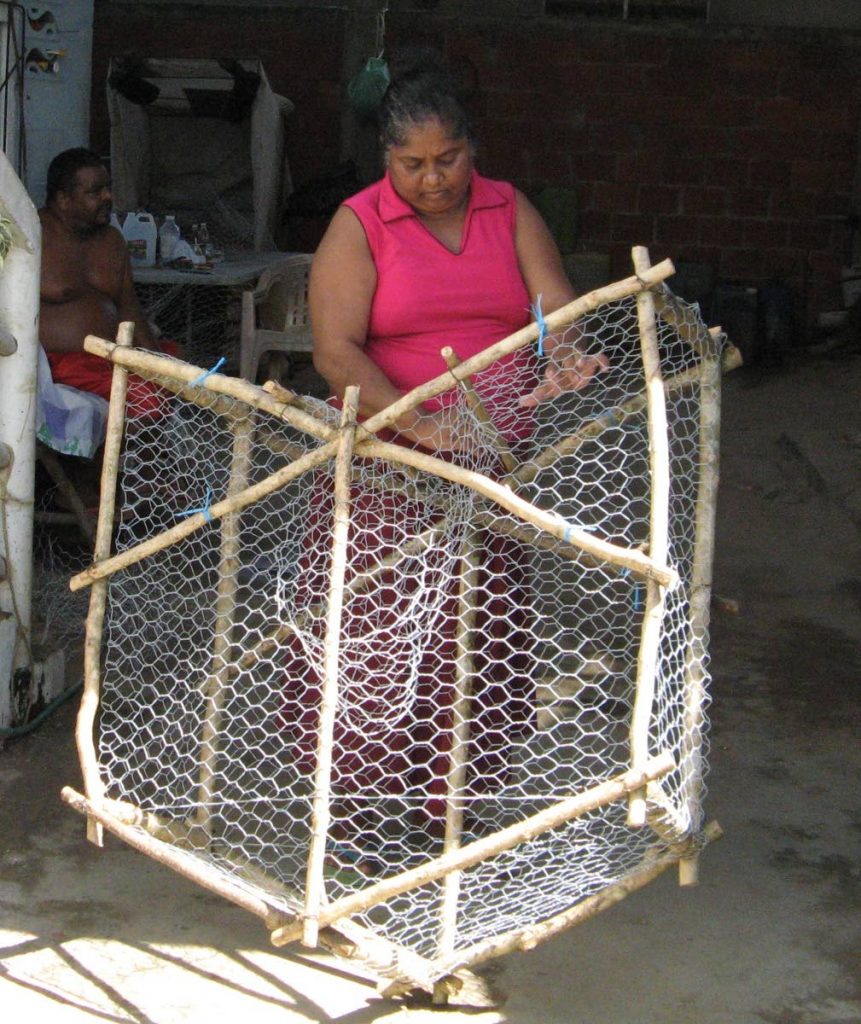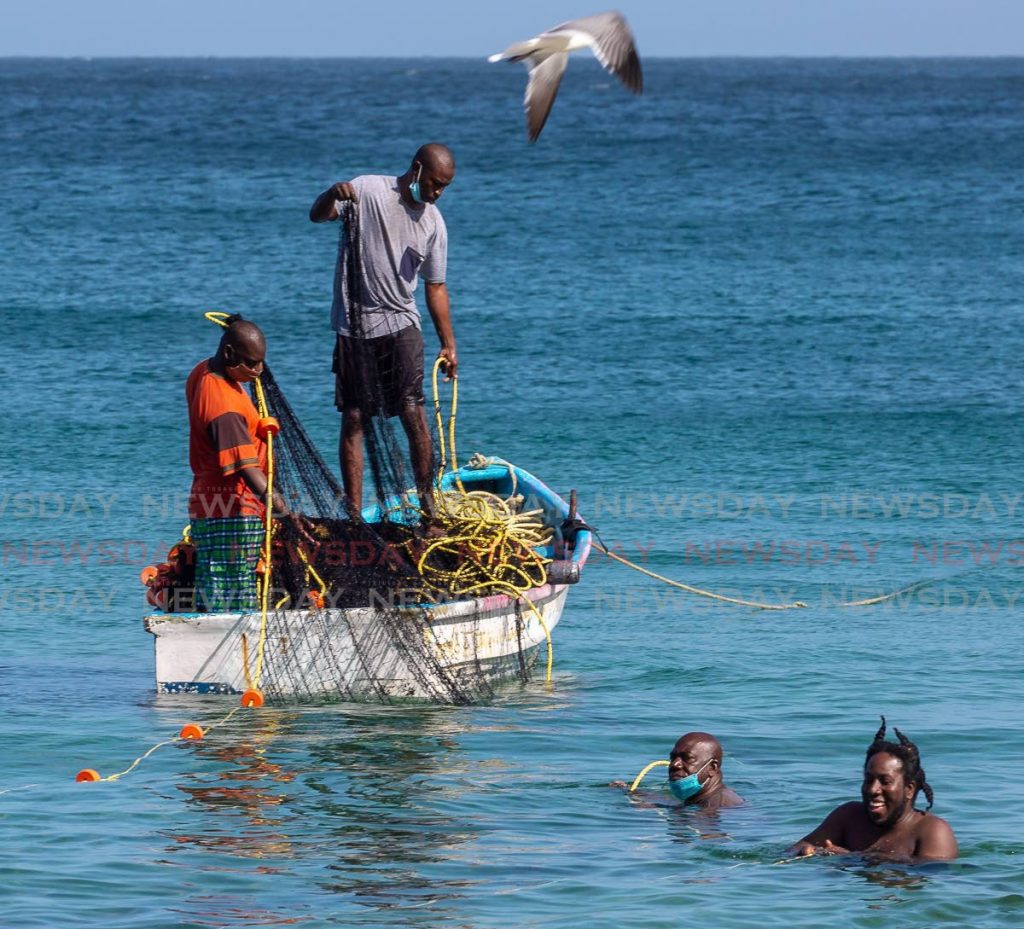Reducing fishing sector's vulnerability through diversity

Rosemarie Kishore,
Senior Research Officer,
Fisheries & Aquaculture Research Programme
Focusing on the third societal outcome – a productive ocean – the Institute of Marine Affairs continues its seven-part series on the United Nations Decade of Ocean Science and Sustainable Development 2021-2030.
We are all familiar with the fisherman bringing in the day’s catch, selling his fish at the market or perhaps along the roadside. However, do you know there are many more roles performed in the fishing industry? The industry includes all the processes involved in getting the fish out of the water and on to our plates; the different types of boats, fishing gear and fishing methods, the various post-harvesting processing methods and facilities, and the distribution and marketing channels of the fish and fishery products.
The available roles identified along fisheries value chains can therefore be quite diverse. Disruptions along the various value chains can lead to negative consequences both to the supply of fishery products, and to those who are dependent on them for their livelihoods. Developing strategies to reduce disruptions and creating new markets can stabilise the value chains.
Importance of fisheries
Fisheries is a valuable contributor to food security and nutrition, as it is a primary source of protein and essential nutrients. Importantly, it also provides a source of income and livelihoods and there are many who are highly dependent on these resources. According to data from the Food and Agriculture Organisation (FAO) and the Word Bank cited by the Second World Ocean Assessment report (in prep), in 2017, 120 million people were involved in fisheries globally and those employed amounted to 40.4 million.
In addition, there was a slightly smaller workforce engaged in post-harvest processing. About 13 per cent of this workforce were women. Small Scale Fisheries (SSFs) or artisanal fisheries employed more than 90 per cent of the world’s 120 million people involved and contributed significantly to poverty alleviation.

Workforce statistics on fisheries for Trinidad and Tobago dates back to 2002. According to that data, 6,500 people are employed in the marine fishing sector, 4,000 of whom are fishers, about 19 per cent are involved in the processing industry, another 19 per cent in fish marketing and distribution, and the remaining one per cent in vessel and gear construction and maintenance.
The artisanal fisheries in Trinidad and Tobago is the largest sub sector, which is estimated to produce 75 to 80 per cent of total fish catches (Hutchinson et al. 2018). It is estimated that fisheries from the capture of marine fish support (directly and indirectly including their dependants) about 40,000 persons.
Livelihood options and diversity strategies
The livelihood options available in the fisheries sector are varied given the wide-ranging activities involved. A livelihood is essentially a means of earning a living. It comprises people's capabilities, assets (both material and social resources), income and activities required to secure the necessities of life.
A study by the Institute of Marine Affairs (IMA) on the fishing industry on the southeast coast of Trinidad found many livelihood options: the boat owner, boat captain, crew member, the jostler (a jack-of-all-trade), and specialised roles in the land seine fishery such as cork man, lead man, oarsman, engine man, scale man and manager. Additionally, there are net builders and/or net repairers, vendors (wholesale and retail) as well as boat engine mechanics and boat builders.
Women also play a critical role in the industry. They are more than simply involved in vending and fish processing. The 2002 study found that women played important and direct, but often hidden roles as boat owners, managers, book keepers, net and fish pot builders and fish processors. As such, given the role of women in the industry, it is more correct to refer to those who participate in the industry as fishers.
Fishers in the artisanal fishery in Trinidad and Tobago employ a range of strategies to supplement and diversify their income as fisheries tended not to meet all the needs of many working in the industry. The 2002 study by the IMA revealed that on the southeast coast, fishers engagement in the industry were full time, part time and even transitory in nature. Apart from fishing, fishers were involved in activities in real estate development, the oil and gas sector or were entrepreneurs in their own right in owning service companies to the energy sector and retail establishments. Others were employed in the public service, in agriculture, in catering or as labourers, lifeguards, house keepers, shop keepers and small-scale traders. Several fishers owned two to three boats.
Other fisheries research by the IMA indicated that in Tobago, more fishers engaged in other occupations or economic pursuits. Fishers owned rental property or were involved in farming, construction, tourism or otherwise employed in the public sector in the Tobago House of Assembly.

On the central west coast of Trinidad, a higher percentage of fishers worked full time in the fishing industry and a smaller proportion held part-time jobs in farming and truck driving. On the northeast coast of Trinidad, based on observations, fishers were involved in eco-based tourism and farming. Other fisheries-related diversification strategies employed include seasonal and multiple fishing methods, highly variable fishing areas and free movement of fishing vessels.
Supplementing income earned from fishing allows fishers more income and livelihood security; redounding to increased economic resilience among the fishers and reducing their vulnerability to internal shocks within the industry and other external impacts such as those from other maritime resource users like the oil and gas sector, and natural occurrences such as storms, hurricanes and climate change impacts.
As expected, the boat owners with more assets have more options and opportunities to increase their income-generating activities, but their investment risks are the greatest. The capital investment for entry into the artisanal fishery can range between TT $44,000 to $81,000 depending on the gears used – also include the cost of a boat and engine. However, for many of the crew, given their lack of assets, limited education and related skills and entrepreneurial abilities, it is indeed a job of last resort. Many of these fishers work part-time and hustle on the side to supplement their income.
An additional external shock to the fishery industry seen currently is the impact of covid19 pandemic. While the degree of this impact has not been determined as yet, the obvious are seen with varying disruptions to the supply chains, difficulty exporting fish and so decrease in foreign revenue earnings, reduction in markets such as dining-in at restaurants, and since April 2020 general reduction in sales of fresh fish.
Improving the value chain
There has been a general decline in fish catches over the years in Trinidad and Tobago, with some fish species being overfished. This has resulted in attention being turned to more species of fish which were not considered target species. To promote making more out of less, there is a push to promote underutilised and discarded fish by turning them into new products and so raise the profitability of the fish processing industry. These can include new types of fish fillets, fish balls and fish sausages, smoked and salted products including smoked fish roe, even ice cream made with fish gelatin.

With the use of technology and the right marketing, other value-added products have also been developed such as fish leather from fish skin, beauty products from fish guts, and health supplements from fish oils and fertilisers from fish waste. This could allow for further job diversity, establishment of new and improved infrastructure for fish processing which can benefit fishing communities and entrepreneurs.
The Fisheries Division and the Caribbean Fisheries Training and Development Institute (CFTDI) is currently engaged in value chain analysis of selected fisheries in Trinidad and Tobago to aid in the development of potential fishery products. These new valued-added products could be linked to the tourism sector and flavoured with our own culture, promoting culinary festivals and fish frys, much like what is seen at Oistins in Barbados and Gros Islet in St Lucia. Fish value-added product development could be a model for economic growth but also for the improvement of human wellbeing and social equity, hallmarks for sustainable livelihoods in fishing.
Fisheries development
The term "sustainable fisheries" means the utilisation of fish resources in a manner which would guarantee the satisfaction of both present and future generations without compromising the resource base (fish stocks), including its habitats and ecosystems. Similarly, a livelihood in fisheries is sustainable when it can cope with and recover from the stresses and shocks from both ecological and economic issues. Thus, fisheries management objectives are concerned with not only optimising yields but does so in the context of maintaining ecosystem health as well as sustaining and improving livelihoods and income-generating activities as well as promoting social cohesion among fishing communities.
Regional governments are yet to come to terms with the depth of the social and economic potential of sustainable fisheries development, and hence they have invested only the minimum resources in fisheries development and management activities. Artisanal fishing as it exists in Trinidad and Tobago cannot solely provide for the needs of many of the fishers, therefore promoting sustainable fisheries is critical for the future well-being of these fishers.
The Fisheries Bill introduced to the Parliament in August 2020, is nearly 30 years in the making. Consistent with international best practice, the bill provides a framework, which makes provision for greater stakeholder involvement in the governance and decision-making process and collaboration with government agencies with responsibilities influencing fisheries. It includes inter alia the protection of trade markets and the penetration of new ones, security of access by nationals to fisheries resources beyond national jurisdiction and promises legitimate and equitable access to fisheries resources and improved social and economic benefits as a consequence of well-managed fisheries.
The Government has identified fishing and fish processing as one of the sub-sectors which can contribute to national sustainable growth and economic diversification. However, specific strategies and plans need to be put into place, which addresses livelihood issues in the fishing industry, particularly improving diversity options and dealing with underemployment.
Similarly, the fishing industry, especially the artisanal fishery would need to reorganise to take greater advantage of potentially new markets including those associated with tourism. The one-man operation of the boat owner dealing with all aspects of fishing would need to be stepped-up with fishing co-operatives and fishing associations playing a greater role and becoming more business oriented. The promotion of the blue economy for the sustainable use of ocean resources for economic growth, improved livelihoods, and jobs while preserving the health of ocean ecosystem mirrors the concept of sustainable fisheries. Fishing has been a traditional use of the ocean; it is important that the significance of small-scale fisheries is not diminished but its role expanded in this new blue economy.


Comments
"Reducing fishing sector’s vulnerability through diversity"